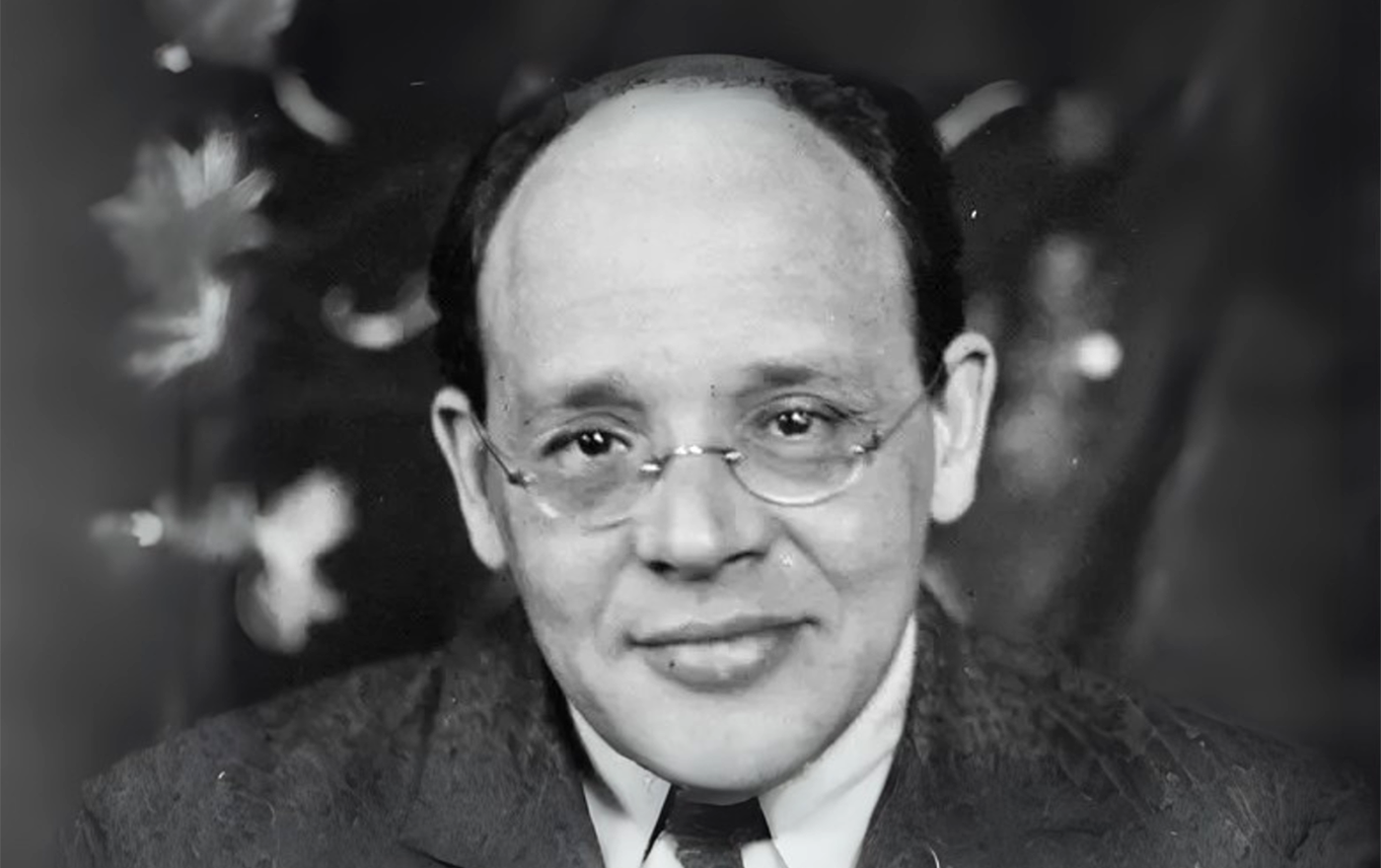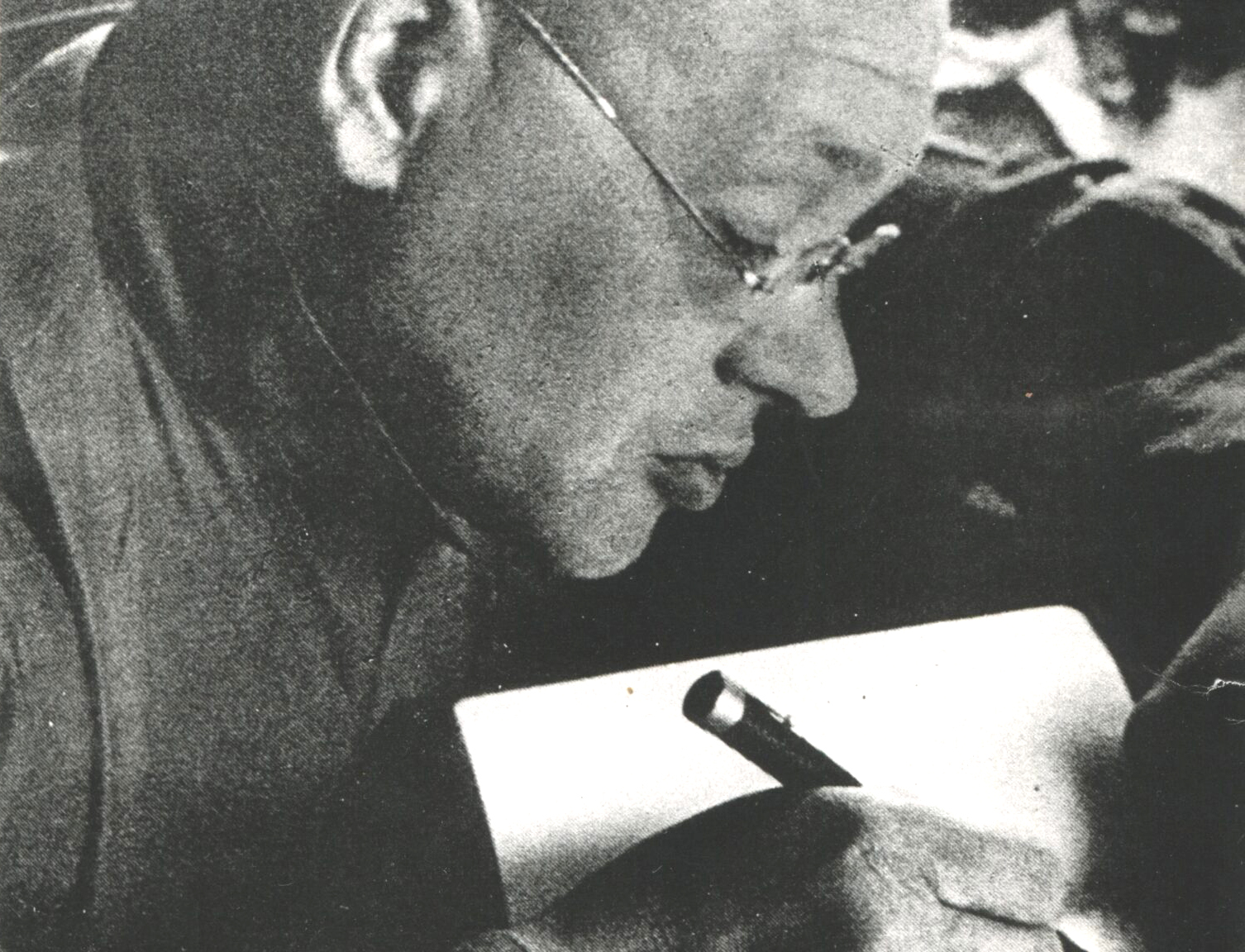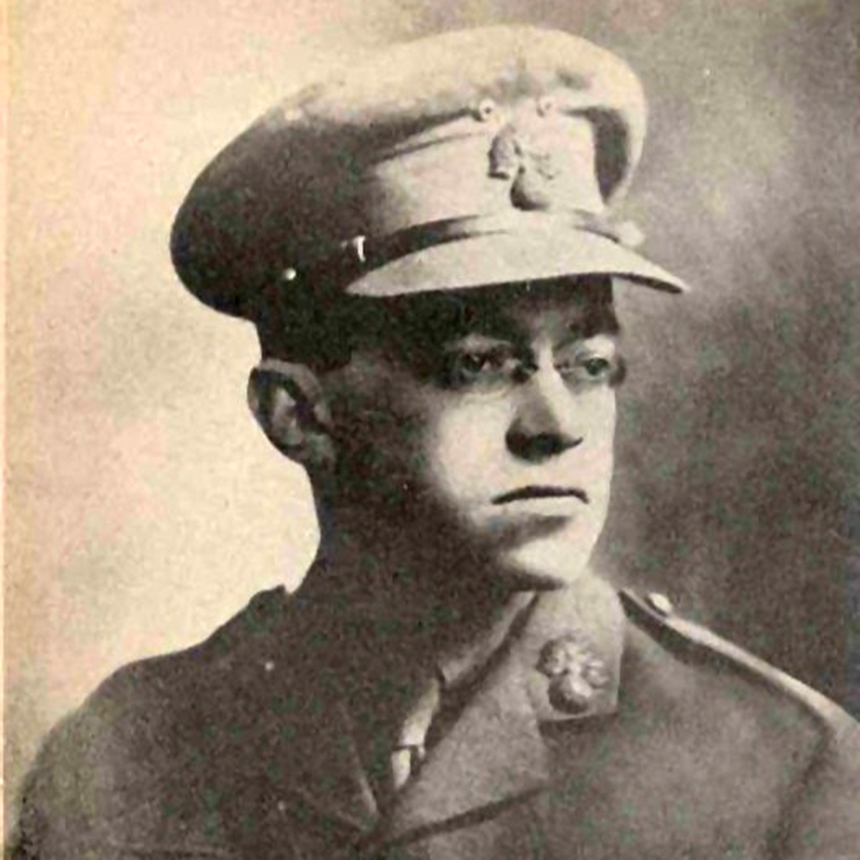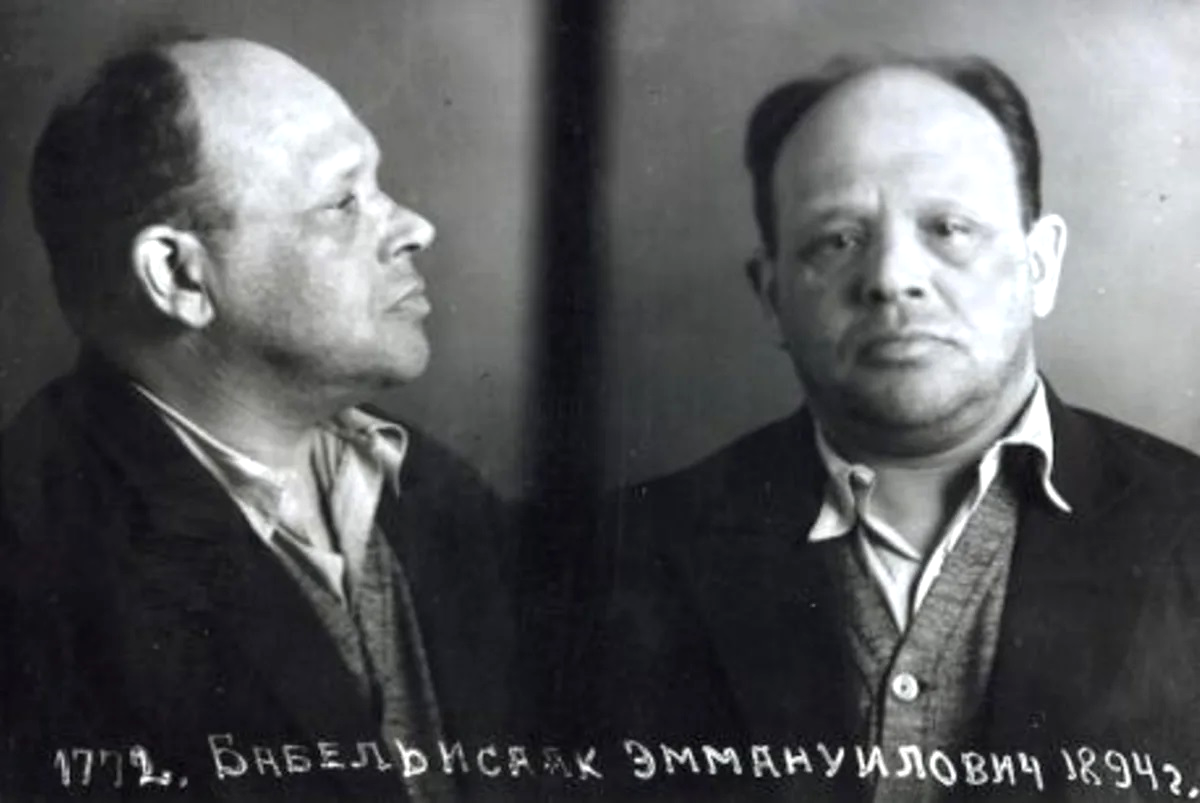He avoided Ukraine but was repressed by the Stalinist regime: what to know about Isaac Babel

Valentyn Bushansky, PhD in political science and junior sergeant of the 244th battalion in the 112th Territorial Defense Brigade of Ukraine, discusses the works of Isaac Babel and his difficult relationship with Ukraine. He was born in Odesa, Ukraine, on 13 July 1894.
On interest in Isaac Babel
Yelyzaveta Tsarehradska: Isaac Babel is a fascinating and fantastically popular figure. Valentyn Bushansky, PhD in political science and a junior sergeant in Ukraine's Armed Forces, is in our studio to discuss Babel. Let me begin by inquiring about your area of interest. How did you come to study Babel's life and work?
Valentyn Bushansky: There are at least two reasons. First, I simply like Babel's works. I derive real pleasure from reading his writings and his words and from the way he composes his sentences and constructs his texts. You know, artists say that when you look at a painting, you don't necessarily pay attention to the content. You should look at the brushstrokes and the artist's technique. So, when I read Babel, I enjoy the literary text itself.
The second reason is that I am a political scientist. There's a very interesting theory in political science that we, political scientists, should pay more attention to the everyday dimension of human life and how everyday context influences our perception of and participation in politics. In this context, I became interested in Babel.

In my opinion, no one has depicted a person in the political dimension better than Babel. He writes about a person who wants to live and enjoy life but finds himself in a political whirlpool amid political processes of all shapes and forms, fanaticism, and cruelty. How can a person survive in this situation? That is why I turned to Babel and analyzed him primarily from the standpoint of political science.
How to view Babel?
Yelyzaveta Tsarehradska: What are the main pillars based on which Babel should be viewed, in your opinion? Some will say: "Oh, well, he was born in Odesa, of course, but was a Soviet writer and a Chekist on top of that. He conquered Ukraine with the Bolsheviks." That is, attitudes to and views on Babel can be very ambiguous. What is your attitude?
Valentyn Bushansky: This is a difficult question. I like Babel, and that's enough for me to just read his works. And I don't care how anyone positions Babel. But we're not just talking about me. We're talking about the general context and a prism through which to view Babel. That's exactly how you posed the question. How do we view him? How do we view him before we open the two-volume or four-volume collection of his works? So, there is a so-called preconception, a preconceived idea that determines the prism through which we perceive Babel's texts.
There is a very interesting thesis about the so-called frames of perception. I'm in Donbas right now and don't have all my notes at hand, but German constructivists say this: "How do we know that Homer's Iliad is an outstanding work?" Do we know it by opening the Iliad itself and reading its lines? Do we know it after reading the entire text and grasping its fantastic, colossal content and the ideas Homer expresses? No, we know that the Iliad is a work of genius even before reading it.
I think this is a very valid statement. Why? Because we can stop thousands of people on the street and ask: "Tell me, please, is Homer a brilliant poet?" And everyone will say: "Yes, he is a classic, a pillar of world literature." But of these thousands of people, the vast majority may have never seen a single line from Homer's Iliad.
The same goes for Babel. We perceive him before we read him. And we view him through a certain prism. In Soviet times, it was one prism, which was replaced with a totally different one later when Babel was eliminated, and his name was forgotten and erased from literature. Yet another perception emerged after 1954 when Babel was rehabilitated and his texts began to be published. A new perception of Babel must emerge in Ukraine. Our country is now eradicating the metastases of the Soviet past and fighting Russian chauvinism and Russian military aggression, trying to protect its cultural landscape. What this new perception will be is a fundamental, quintessential, and extremely complex question. How should we construe Babel? How should we present him to people who have not read him yet and those who will find it very difficult to accept him?
Yes, we can present him through a vulgar prism, so to speak: he was an Odesa Jew, wrote in Russian, and supported the Bolsheviks and the occupying force. Why, then, do we need him at all? This is one perception.
There is another perception, which, in my opinion, is much more correct, much more complex, and much more tragic. Undoubtedly, Babel is a tragic figure. He was born into a well-off Jewish family and lived in conditions of antisemitism. Babel was not accepted into school because he was a Jew. He learned Russian on his own, although his native language was Yiddish. He tried to fulfill himself as a writer, having an incredible talent, although his father wanted him to be a businessman. Instead, Babel wanted to be a writer and managed to enter Russian literature and win a place in it. He survived the tragedy of the revolution and the civil war and exposed it in all its cruelty, tragedy, and physiological unacceptability.
That's the value of Babel as a documentalist and witness. He was a person with a clear conscience who tried to show us what a normal person experienced in those extremely difficult conditions. Yes, he made moral compromises as a person who lived in a certain situation. Yes, he strayed into propaganda in his texts. But, as an old joke says, we love him not only for this.
Babel's texts have exceptional value as literary texts, precisely in light of the aesthetic criteria we can use to evaluate them. His texts are also essential for us as evidence of an era. Each document has the imprint of an era. Even historical chronicles should not be perceived as certain objective evidence. These are always subjectively and opportunistically colored texts, but their documentary significance is not lost. This is also the case with Babel's texts. Yes, of course, they are overshadowed by the era in which they were created, but they have exceptional significance as documents of that era.
The third point is much more complicated and incomprehensible to me in many ways. This is, again, the topic of Babel and Ukraine. Babel's life is inextricably linked with Ukraine. The three stages of Babel's work are Red Cavalry, Odessa Stories, and a series of stories that Babel did not finish. This is the cycle Great Well that describes collectivization in Ukraine. All of Babel's texts are about Ukraine. All of Babel's heroes act in Ukraine. They live, commit crimes, suffer from criminals, and die here. However, Babel tries to avoid this Ukraine in a phenomenal, weird way, turning his eyes away and attempting to escape from it. This is an extremely complex topic, and one that is very painful for us as Ukrainians and people who live here in Ukraine.
Having experienced all this in Ukraine, why was Babel unable to see and understand it? From a psychological point of view, this was undoubtedly trauma repression. Babel must have had a certain trauma associated with Ukraine itself, which he tried to repress, rationalize, and deny. That is why Babel's texts are significant for our culture and extremely interesting as a reflection of the path Ukraine has covered. Babel was not the only one in his denial and ignoration of Ukraine. This was also true of Ukrainians who lived in that era, and this is crucial for us in order to understand the path that we have walked since then.
The early 20th century was a time of a civil war, revolution, the formation of the Ukrainian Central Rada, and the birth of the Ukrainian People's Republic. Millions of people who found themselves in this maelstrom did not understand it and tried to ignore it without applying their hearts. A hundred years later, we see the continuation of this struggle, new battles, and a totally different situation. Millions of people are defending Ukraine now, fighting for Ukraine, and, unfortunately, dying for Ukraine. But we have come a long way, and the point from which we started is precisely reflected in Babel's texts.
Yelyzaveta Tsarehradska: It is crucial to understand the power of an empire when it makes this distancing and looking the other way possible, so to speak.
Valentin Bushansky: Yes, definitely.
Babel and Ukraine
Yelyzaveta Tsarehradska: I would like to ask you to expand on your statement that, apart from Babel's works and his creative genius, you became interested in his figure as a political scientist. What else did Babel and his life tell you as a political scientist?
Valentyn Bushansky: That's a difficult question. For some reason, Vladimir (Ze'ev) Jabotinsky immediately springs to mind. He was a Ukrainian politician, a Jewish politician, a founder of Israel, and the founder of radical Zionism.
Why was he a Ukrainian politician? First, he ran for the State Duma, even before the revolution, in Volhynia. Second, he was born in Odesa, lived there for a long time, and matured there as an individual. As the leader of the Jewish political movement in Ukraine, he signed a kind of memorandum with Symon Petliura, saying that the Ukrainian Central Rada and the Ukrainian People's Republic supported the cultural self-determination of the Jewish community in Ukraine and the activities of Jewish religious and socio-political organizations. In turn, these Jewish organizations supported the Ukrainian People's Republic. In particular, there was an agreement to set up Jewish self-defense units to resist pogromists, etc.
Jabotinsky was radically criticized for this. He, in turn, declared: "I want them to write on my grave: 'I am the Jew who signed an agreement with Symon Petliura.'" But why did I mention him? When the Central Rada convened, the faction representing the Jewish Bund labor party and deputies from other Jewish political organizations were usually criticized. "To what extent do you support the Ukrainian People's Republic? How much do you support this or that memorandum, these or those laws that the Ukrainian Central Rada is putting forward?" To this, Jabotinsky said: "I very often get the impression that Ukrainian politicians want Jews to be greater patriots of Ukraine than Ukrainians themselves."

These connotations of Ukrainian-Jewish relations are interesting and crucial for us. How these relations developed is key. How the Jewish community in Ukraine perceived Ukraine, Ukrainian culture, and statehood is essential to showing how these processes developed in the Ukrainian community. We can see here that Jabotinsky was a much greater patriot of an independent Ukraine than many Ukrainians at the time.
Babel tried to avoid the topic of Ukraine, even the very words "Ukraine," "Ukrainians," "Ukrainianism," and "Ukrainian culture." This is extremely important. By touching on this topic, he would have had to go through some kind of revolution and completely revise his writing, which he was obviously not ready to do.
If Babel was not ready for this, what can we say about other people who were less educated and less deep in their feelings? So, this topic is fascinating and extremely important. In this case, Babel is a kind of indicator showing how far we have come in our development.
After rereading two volumes of Babel's works, I found only one time the adjective "Ukrainian" used in his texts. It appears in the story "Gapa Guzhva," which was written in the 1930s when the Ukrainian Soviet Socialist Republic already existed and the process of collectivization was underway. Babel also used the noun "Ukraine" once in the story "At Our Father Makhno's." And that's it. So, being in Ukraine, Babel did not notice Ukraine. He pushed it away and overshadowed it in every possible way. He participated in the war as a correspondent in the campaign of the First Cavalry Army, which was defeated by the UNR army near Brody and had to retreat. Again, Babel tried to ignore this and avoid all these words.
This is extremely tragic, in my opinion. This perhaps speaks even more about how painful the topics of Ukraine, Ukrainian independence, Ukrainian struggle, and Ukrainian culture were for Babel. They were so hurtful that he tried to avoid them. As I have already noted, this is a form of psychological defense, but what is repressed is something painful you cannot understand or master.
Getting to know Babel
Yelyzaveta Tsarehradska: Let's give our listeners some homework. What should they read to get to know Babel? Should they go with the most popular and time-worn Odessa Stories or Red Cavalry?
Valentyn Bushansky: I would recommend reading the story "Kolyvushka," which was not published in Babel's lifetime. It tells about collectivization in the Kyiv region. A peasant has everything taken away from him: his house, tools, and all his possessions. He is thrown into the street and told he is no longer needed. So, this peasant grabs an axe and hits his horse. The axe cuts into the skull, and the horse rushes away. She then returns to her owner, who says, "Let's make peace, daughter," and hits her with the axe again.
This is how a terrified person acts, without realizing where the main source of danger is. Instead of killing those who came to turn him, a free man, into a slave, the peasant kills an animal that is important to him.
This is the story I would recommend for starters. Babel could not have survived in the Stalinist era, having this kind of outlook on life and writing texts like that. He could not have survived amid collectivization, "the construction of communism," "bright communist ideas," and the entire concentration camp.

Babel has come a long way from a photographic description of cruelty and a deep person who finds himself in tough situations, which we see in Red Cavalry, to the Great Well and "Kolyvushka," where he documents the cruelty and blindness of the Soviet regime.
I am happy that we are past this stage of blindness. We, Ukrainians, are no longer blinded, not knowing who our enemies are and where our strength lies. We are now defending our country and living as people who look at the world clearly, aware of ourselves in this world. Babel described the point from which we started, the point of our blindness, helplessness, and the unconscious bitterness that came from our blindness. I would recommend starting with this story.
This program is created with the support of Ukrainian Jewish Encounter (UJE), a Canadian charitable non-profit organization.
Originally appeared in Ukrainian (Hromadske Radio podcast) here.
This transcript has been edited for length and clarity.
Translated from the Ukrainian by Vasyl Starko.
NOTE: UJE does not necessarily endorse opinions expressed in articles and other materials published on its website and social media pages. Such materials are posted to promote discussion related to Ukrainian-Jewish interactions and relations. The website and social media pages will be places of information that reflect varied viewpoints.



















